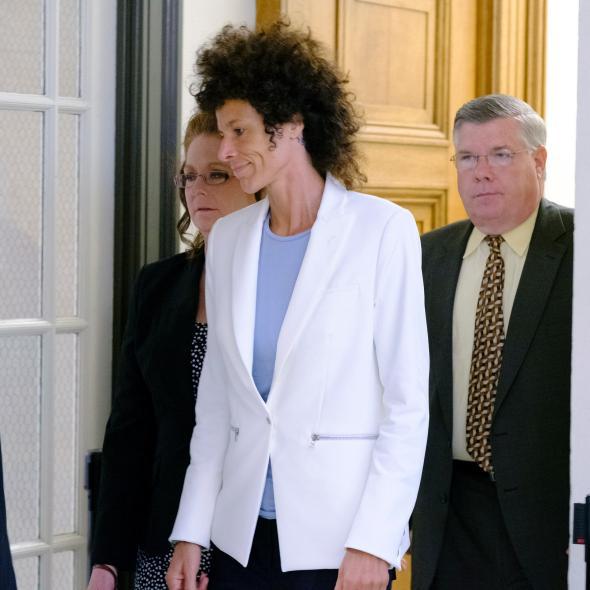On Saturday, the sexual assault trial of Bill Cosby ended with a hung jury. We still have not learned how the jurors were split, nor do we know why those who held out for acquittal remained unconvinced beyond a reasonable doubt of Cosby’s guilt. Regardless, the prosecution’s failure to convict is very much in keeping with a longstanding criminal justice tradition of skeptically treating women’s accounts of sexual violation. The staying power of what I have called “credibility discounting,” or biased disbelief, is a notable feature—perhaps even the dominant feature—of our legal response to sexual assault.
For much of our nation’s history, our laws formally adopted a stance of incredulity toward sexual assault allegations. Complainants in these cases faced a set of unique procedural requirements. An alleged victim’s testimony was insufficient without further corroboration. Only complaints made “promptly” could proceed. Jurors were explicitly warned to evaluate the complainant’s testimony with special suspicion.
While modern reform efforts have mostly succeeded in abolishing formal rules of disbelief, credibility discounting has now moved to the realm of law enforcement. As I describe in a recent paper, credibility discounts are meted out at every stage of the criminal process—by police officers, prosecutors, jurors, and judges. This fact is not lost on victims of sexual assault, the vast majority of whom decline to report to law enforcement, in essence preempting the discounting of their credibility.
The widespread perception that police, in particular, will likely not pursue allegations of nonstranger sexual assault is accurate. Law enforcement officers often disregard truthful allegations, not only because sexual assault and its impact on victims are misunderstood, but also because the incidence of false reporting is substantially overestimated. (It is worth emphasizing that the existence of credibility discounting does not mean that all sexual assault allegations are true; the problem, rather, is that perceptions of falsity dwarf incidents of actual falsity.)
Empirical research on policing consistently establishes the inferior treatment of sexual assault across the nation, including in the cities of Los Angeles, Baltimore, St. Louis, New Orleans, New York, Salt Lake County, Detroit, and Missoula, Montana. Although the poor handling of sexual assault allegations is rampant, police responses tend to be particularly defective in cases involving women of color, immigrants, LGBTQ individuals, women in poverty, and sex workers. I argue in the recent paper that police failures to investigate sexual assault are commonly a result of credibility discounting.
Even when police move forward with a sexual assault complaint, prosecutors may choose not to pursue the case. Especially where acquaintances are involved, prosecutors frequently express a concern that jurors will downgrade the accuser’s credibility, leading to anticipatory discounts. Many prosecutors acknowledge, as one put it, that they do “consider jury bias when determining whether to prosecute,” and that “a lot of the cultural attitudes about sexual assault … are part of the consideration about whether or not we would be able to prove [guilt] beyond a reasonable doubt.” In short, the ubiquity of credibility discounting helps to explain why, according to estimates, out of nearly 1,000 rapes that are committed, only seven will result in a felony conviction.
It remains to be seen if a jury will ultimately convict Bill Cosby of felony sexual assault. (The district attorney for Montgomery Country, Pennsylvania, immediately announced plans to retry the case.) What is clear is that, for many of the 60 women who have come forward in recent years with sexual assault allegations against Cosby, the credibility discount was a powerful reason to keep silent. Indeed, as New York reported in its profile of 35 accusers, Cosby himself allegedly told some of his victims that they would not be believed if they spoke up. Andrea Constand, the complainant in the case that just ended in a draw, was apparently believed when she first made a report in 2005—but still a jury would probably not convict, the district attorney at the time concluded.
In the intervening years, however, a he-said-she-said case was transformed—or so it appeared. Shortly before trial, the prosecution asked the court to admit the testimony of 13 accusers whose experiences were reportedly quite similar to Constand’s. In each instance, Cosby gave the woman a pill or another intoxicant and she awoke later having been sexually assaulted. One of these 13 women—Kelly Johnson—was allowed to testify. Her account suggested that Cosby knew exactly what he was doing when he gave Constand three pills before sexually penetrating her.
The prosecution also sought, successfully, to admit Cosby’s deposition testimony, in which he confessed to having used Quaaludes to “have sex with young women.” Describing his sexual encounter with Constand, Cosby recalled, “I don’t hear her say anything. And I don’t feel her say anything. And so I continue and I go into the area that is somewhere between permission and rejection. I am not stopped.”
Notwithstanding this evidence that corroborated Constand’s account, at least one juror was not persuaded. What if anything would have made the difference? Had all 13 women been permitted to testify, this would surely have made Cosby’s defense—that Constand consented—seem even less plausible. But if 13 women—or seven, or four, or even two—is what it takes to convict, along with the incriminating words of the defendant himself, sexual assault will continue to go largely unpunished. And incredible women will continue to be denied justice.
